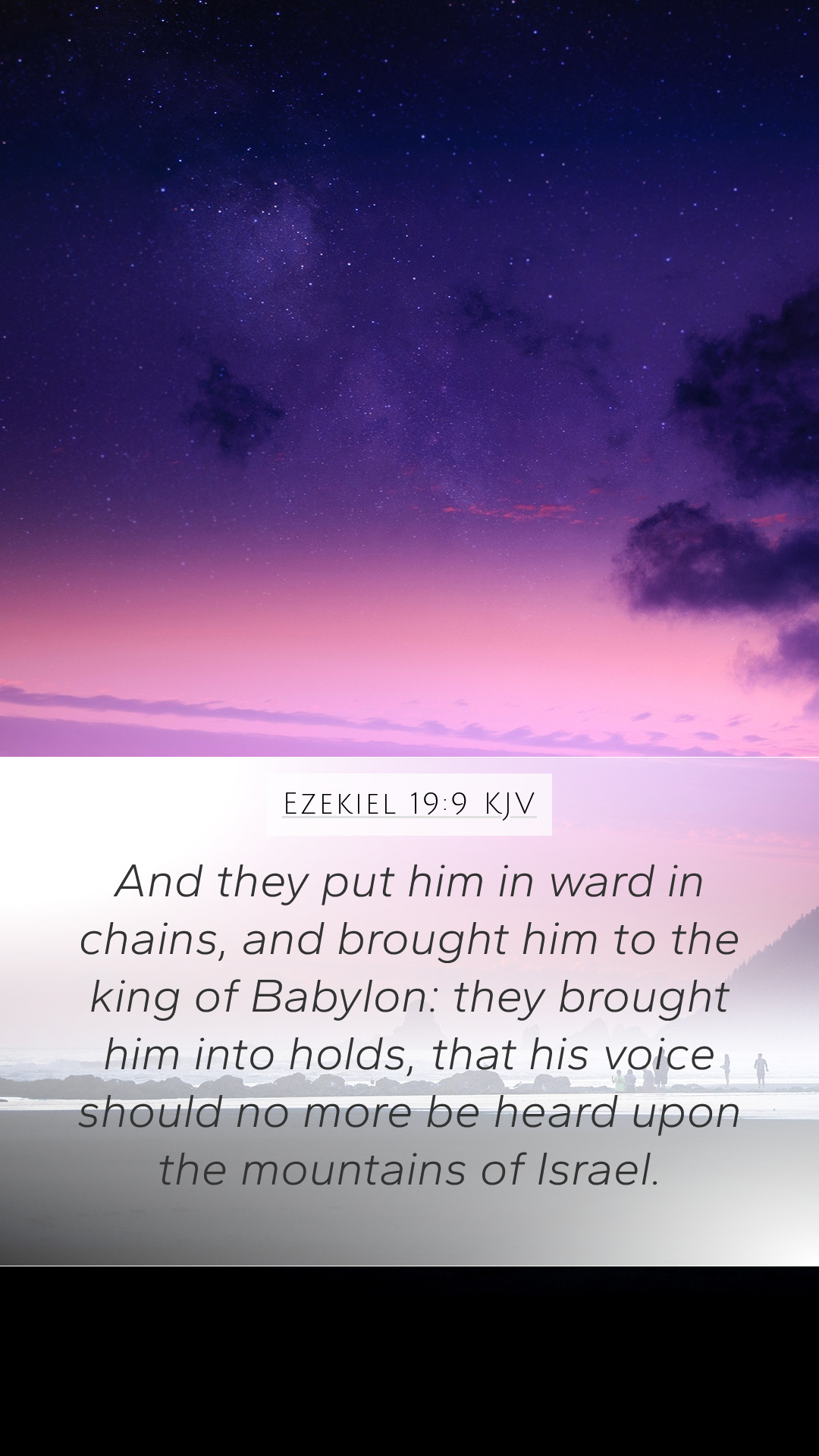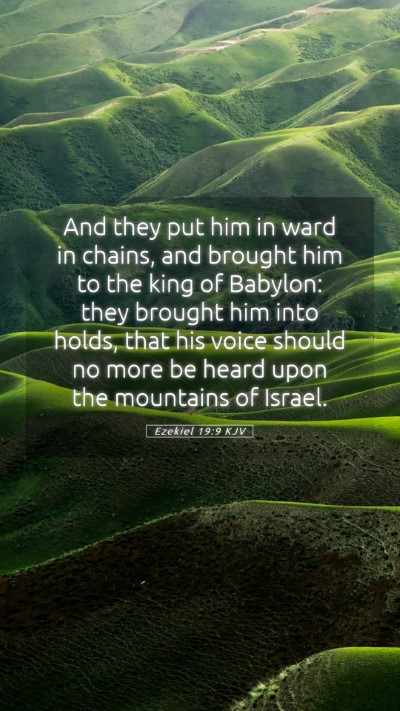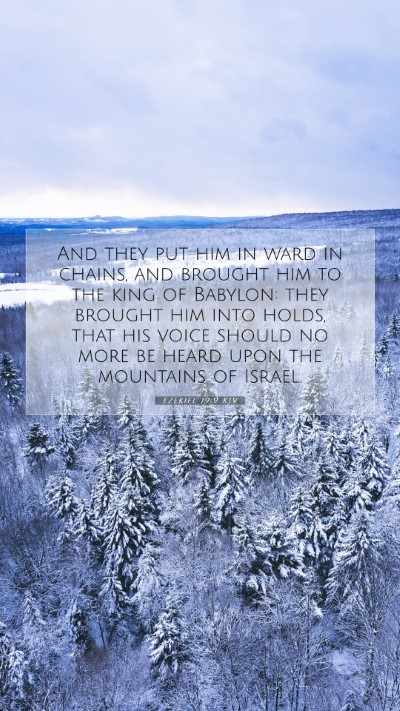Understanding Ezekiel 19:9
Ezekiel 19:9 is a poignant verse within the context of prophetic literature, presenting a sobering illustration of judgment through the metaphor of a lion. In this verse, the imagery is used to reflect both the nobility and the inevitable downfall of Israel. To grasp its meaning, one can incorporate insights from various public domain commentaries, including those by Matthew Henry, Albert Barnes, and Adam Clarke.
Verse Context
The full verse states: “But she was plucked up in fury, she was cast down to the ground, and the east wind dried up her fruit: she was plucked up in the fury of the people, and they cast her down.” This verse is part of a larger metaphorical framework that portrays the fate of Israel, symbolized as a lioness. The imagery conveys loss, devastation, and the consequences of sin.
Commentary Insights
-
Matthew Henry:
Henry emphasizes the dramatic transition from strength to despair, highlighting how Israel's initial glory and power were devastated by their disobedience and rebellion. He relates this to God's judgment, which serves to correct and bring about restoration, albeit harshly through the imagery of a lioness being stripped of her strength and hope.
-
Albert Barnes:
Barnes reflects on the metaphor of the lioness as representing the monarchy of Israel and the leader who fell from grace due to the nation's sin. The “east wind” symbolizes a divine judgment from a neighboring power, often associated with the Babylonian invasion. This commentary underscores the reality of divine sovereignty over the kingdoms of men.
-
Adam Clarke:
Clarke provides a theological perspective on the consequences of leadership failure, suggesting that rulers bear significant responsibility for the state of their people. He connects the symbolism of being “plucked up” to the removal of God’s favor and protection, thus leading to national calamity.
Interpretative Themes
Several key themes emerge from Ezekiel 19:9 that resonate with contemporary readers:
-
Judgment:
This verse illustrates the severity of God's judgment upon unfaithful leaders and nations, serving as a warning for current and future generations.
-
Loss of Identity:
The metaphor of the lion reflects not only a loss of power but also a loss of identity for Israel, a theme echoed throughout the prophetic literature.
-
Divine Sovereignty:
The role of divine intervention in the rise and fall of nations is clearly articulated, affirming God’s ultimate authority over history.
Application for Today
Understanding Ezekiel 19:9 requires not only an examination of its historical context but also reflection on its application in our lives today. The themes of judgment and identity pose critical questions for personal and communal introspection regarding leadership, accountability, and moral integrity.
Cross References
Ezekiel 19:9 can be cross-referenced with the following passages, which echo similar themes:
- Ezekiel 17:12-20: A parable of the two eagles representing Israel's kingship and their eventual fall.
- Jeremiah 2:19: A reflection on the self-destructive nature of turning away from God.
- Isaiah 31:1: A warning against relying on human strength rather than seeking divine protection.
Conclusion
Ezekiel 19:9 serves as a compelling reminder of the historical and spiritual realities that govern nations and their leaders. By engaging with Bible verse meanings, interpretations, and commentaries, individuals can deepen their understanding of Scripture. As we study, let us remain vigilant about applying these lessons to our daily lives and communal practices.
This verse encourages a thorough exploration within Bible study groups or online Bible study platforms, offering rich Bible study tools and resources for effective Bible study lessons and insightful Bible study analysis.


